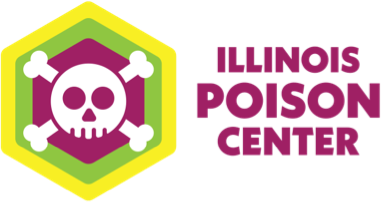Lead Poisoning
Anyone can get lead poisoning but children younger than 6 are at a higher risk. That’s because their bodies more easily absorb lead and are more susceptible to its effects. This naturally occurring chemical can build up in their bodies at a higher level. As a parent or caregiver, you can help protect young children from lead exposure. Greater awareness and simple actions can have a big impact.
Understanding Potential Exposure
You and your family may be exposed to high levels of lead if your home:
- Was built before 1978
- Is being painted or renovated
- Is near an industrial factory
Many areas of Illinois also contain high levels of lead in the soil. Sources of lead in our soil are leaded gasoline, lead paint dust and industries that use lead.
Lead can also be found in:
- Water from old lead piping
- Food grown in lead-saturated soil
- Earthenware or fishing products made with lead or lead-based paint or glaze
Protecting Young Children
A healthcare provider should assess your child for lead poisoning starting at 6 months old to 1 year old. If your child has high levels of lead, IPC recommends you identify and remove the source of lead. If the source of lead cannot be readily identified or removed, the child should be removed from the environment.
Children with high lead levels in their blood may not have any symptoms. The long-term effects however can be serious. These include disabilities, decreased growth, hyperactivity and impaired hearing. In addition, damage can occur to other vital organs, such as the kidneys and stomach.
Reduce your child’s exposure to lead with these actions:
- If you work with lead on the job or as a hobby, shower and change clothes before going home. Store and wash work clothes separately.
- Encourage children to play in grassy areas of the yard or playground to decrease the amount of soil they touch or track into the home from their shoes.
- Wash your child’s hands before they eat or sleep, especially after playing outside.
- Wash toys, stuffed animals and bedding regularly.
- Give your child foods high in iron and calcium to help reduce the amount of lead the body absorbs.
- Use cold tap water for cooking. Drink cold tap water and serve your child cold tap water. Hot water and water sitting in the pipes for a long time may contain more lead. Note: this only applies if you have lead pipes in your home.
IPC is here to help. Don’t wait for symptoms of lead poisoning if you suspect your child was exposed to lead or other environmental poisons. Call our toll-free helpline at 1-800-222-1222 for treatment advice. We’re available 24 hours a day, every day of the year.
Additional Resources
- National Lead Information Center Hotline at 1-800-424-LEAD (5323); email, mail and fax options available here.
- Environmental Protection Agency website
- Illinois Department of Public Health’s Childhood Lead Poisoning Prevention Program (217-782-0403 or 1-866-909-3572)
